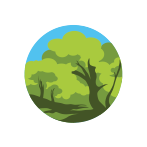Geography
Intent Statement for Geography at Theydon Bois Primary School
Our vision is for every child at Theydon Bois Primary School to become a curious and knowledgeable geographer, with a deep understanding of their local area and a strong sense of their place in the wider world. We aim to inspire a fascination with places and people, fostering a desire to explore, investigate, and ask geographical questions. Our curriculum is designed to be ambitious and knowledge-rich, meeting and exceeding the requirements of the national curriculum and aligning with current Ofsted guidelines.
A Coherently Sequenced, Knowledge-Based Curriculum
Our geography curriculum is carefully planned and sequenced to build on prior learning from EYFS through to the end of KS2. We have identified the Big Ideas that underpin geographical understanding:
- Locational Knowledge (Where is this place?)
- Place Knowledge (What is it like?)
- Human and Physical Geography (How and why is it changing?)
- Geographical Skills and Fieldwork (How do we find out?)
These concepts are revisited and deepened across different year groups, ensuring children develop a secure and well-connected schema of knowledge. For each topic, we use a Knowledge Organiser. This document outlines the key facts, essential vocabulary, and core concepts (Big Ideas) that we expect all children to know and remember. They are introduced at the start of each topic to support and guide learning, and are used regularly for retrieval practice, strengthening knowledge in pupils' long-term memory.
Learning from Our Local Environment
Our extensive school grounds and proximity to Epping Forest provide a unique and invaluable context for geographical fieldwork. We maximize the use of our outdoor environment, ensuring children learn through direct, first-hand experience.
- EYFS & KS1: Children use our school grounds as their primary laboratory. They will go on seasonal walks to observe changes in the wildflower meadow, create simple maps of the playground, and use positional language to navigate their way to the fruit trees. They will learn to identify human features (e.g., buildings, allotment beds) and physical features (e.g., trees, soil) in our immediate locality.
-
KS2: As they progress, children will undertake more complex fieldwork. They will conduct land-use surveys of the school grounds, investigate microclimates in different areas, and analyze how the allotment's soil and vegetation have changed over time. Our proximity to Epping Forest will be leveraged for studies on different habitats, and for understanding the impact of human activity on a local ecosystem. These experiences provide real-world data and context for classroom learning, bringing geography to life.
Fostering a Culture of Enquiry and Vocabulary
We believe that high-quality geography is more than just memorizing facts; it's about asking great questions. Our curriculum is enquiry-led, encouraging children to think like geographers and question what they see. We explicitly teach and model the use of specific geographical vocabulary from the Knowledge Organisers, ensuring children can articulate their understanding with precision. This focus on language, combined with regular fieldwork, allows children to make meaningful connections between the abstract concepts taught in class and the tangible world around them. We aim to equip our pupils with the skills and knowledge to become informed, responsible, and globally aware citizens.
Knowledge Organisers
Theydon Bois Primary has created its own Knowledge Organisers to support with memory skills, in order to retain key facts and support with learning. There is lots of educational research into memory, indicating that our working memory capacity is limited (cognitive load theory), so by storing more in our long-term memory, we can free up our working memory capacity (Paas et al, 2004), which will support our day to day learning.
We created these Knowledge Organisers to aid the retention of key knowledge, vocabulary and skills taught within topics; to encourage that pupils then actively use this knowledge, vocabulary and these skills wherever possible. Our goal is that these Knowledge Organisers will be introduced at the start of each topic within our half termly themes. They provide key information that we expect all children to be able to discuss and expand upon by the end of the topic.
They provide parents with an insight into what our pupils will be learning over the half term. The individual Knowledge Organisers will also be used regularly within lessons and recapped at the end of the topic or theme, highlighting to the pupils how much they have learnt.
The Knowledge Organisers also provide a starting point for parents who wish to challenge their children further. We actively encourage parents to investigate and research the topic in greater depth or to reinforce at home, what the pupils are doing in the classroom. Our Knowledge Organisers have been created for most topics we cover within a curriculum subject. They will be added to as we go through the year. They will be actively used in lessons and referred to regularly, reinforcing key vocabulary throughout the topic.
Year A
Summer
Spring
The Amazon Basin - Year 5 and 6
Autumn
South Wales - a region of the UK - Year 3/4
Year B
Autumn
Where on Earth are we -Year 3/4 Autumn 2
Spring
Surrounding Environment - Year 1/2
Is Pigeon Racing a Global Sport? - Spring 2 Year 3/4
ATHENS AND GREECE - Spring 1 Year 5/6

